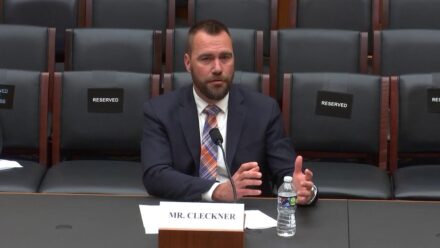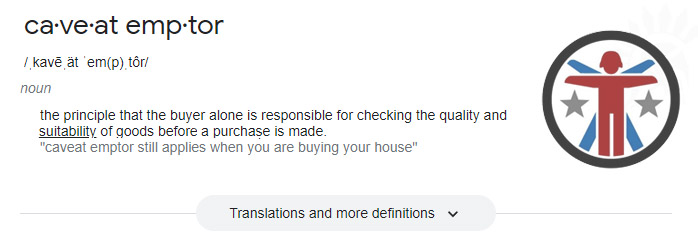Caveat Emptor – the phrase is not just for physical products. It applies just as much to training, education, and legal protection. That includes what is commonly referred to as CCW insurance.
Flagstaff, AZ
In simplest terms, CCW insurance is financial protection against the costs of possible criminal prosecution and/or civil lawsuits if you employ deadly force in self-defense or the defense of your family.
CCW Insurance Providers…Or No?
Recently Ryan Cleckner, a veteran of the 75th Ranger Regiment turned attorney who taught Constitutional law courses at the University of Alabama in Huntsville, wrote an analysis of concealed carry insurance providers. Among other things, he looked at such details as:
- Coverage of criminal defense cost
- The right to choose your own attorney
- The provision of money up front
- Availability of a daily allowance/per diem to replace lost income
- Coverage of civil defense cost
- Coverage of administrative cost
- Coverage of Private Investigator fees
- Coverage of expert witnesses
- Bail bond coverage
- Types of legal weapons covered

Ryan Cleckner testifying before the U.S. House of Representatives Subcommittee on the Administrative State, Regulatory Reform and Antitrust on the topic of “Reining in the Administrative State: Reclaiming Congress’s Legislative Power.”
While researching the details of numerous prominent CCW insurance programs and comparing them, Cleckner realized several things. Three of them are of great significance.
- Many of these companies are “Self-Defense Liability providers”, now what you normally think of when you hear insurance: Many, if not most, “insurance” plans available for the CCW niche aren’t insurance plans at all. They’re either pre-paid legal coverage or self-defense liability plans.
- Some of these programs are not their “own” programs. They are white-labeled plans from other providers. What they claim to cover may not always equate to what they actually cover, though that disparity might be more misunderstanding-disconnect than intentional corporate animus
- You should always read the fine print: and be cognizant of the fact that your “insurance” provider might not have read it themselves.
Cleckner says, “It’s difficult, if not impossible, to determine what self-defense liability (CCW insurance) is best for any person and their specific situation and needs. Much like I can’t determine what level of coverage you need for homeowners insurance, I can’t tell you which firearms legal protection option to get.”
You can still perform due diligence, however, and while ultimately the decisions of if and which are yours, that comparison is a good place to start.
Self-Defense Financial Risks of Lethal Force
The two main financial risks after using your firearm in self-defense are the costs of defending yourself in a criminal trial (if you are prosecuted by law enforcement) and/or in a civil trial (if you are sued by someone).
A shooting you believe was justified may still result in prosecution or a lawsuit. Either the evidence doesn’t clearly exonerate you, an anti-gun prosecutor wants to make an example of you, an outraged, grieving, disbelieving, or just opportunistic family might file suit against you, or something else.
This may (and frequently does) occur regardless of the ultimate legal ruling on your shooting.
In the meantime, you may need bail money to get out of jail. You might need to hire a criminal defense attorney. You could have to deal with multiple lawsuits, particularly if a civil judgement is made against you. It is not unreasonable for a criminal defense case to cost a few hundred thousand dollars or more. Then there is the matter of lost wages/income suffered while the trials are ongoing.
You will incur those costs even if you “win” the case(s).

One Provider’s Response: Improvements Made
One good thing that’s resulted from Cleckner’s study is the successful efforts by Right to Bear.
After a very critical review in the initial comparison, Right to Bear Insurance received the worst rating possible on the Gun University scale. They received an F, just like what you get in grade school.
However , after much communication with Cleckner and others, Right to Bear has claimed the “Best Value” spot, with an A.
Says Cleckner, “Right to Bear received a bad grade out of the gate. Thankfully, [they were] open to all our previous critiques and…changed their policy and coverage to address each and every single one.”
Does that mean Right to Bear is the program for you? Not necessarily. It’s not at the top of the GU recommended list. It’s just redeemed itself and earned a top score in the budget category; maybe that’s what you can afford. Maybe you want more options and more thorough coverage.
CCW Insurance: Caveat Emptor
CCW insurance is a small cost per month as protection against an insurmountable cost later – it certainly could be worth the expense. Do you need it? If so, what company should you choose?
Start with the GU study and begin the process of making an informed decision.
Ryan Cleckner
Co-Founder, Gun University
1/75 Ranger Battalion, 75th Ranger Regiment 1998-2003
Juris Doctorate (J.D.) Quinnipiac University School of Law
Author, The Complete Beginner’s Guide to Precision Rifle Shooting

Ryan Cleckner in Asadabad 2002
You can skip to the end and leave a response. Pinging is currently not allowed.








